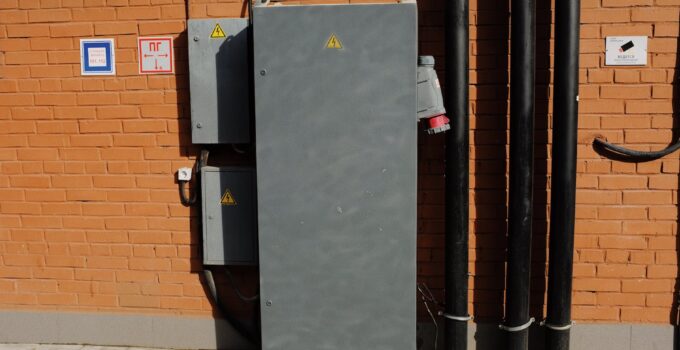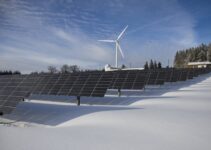Generators are an essential tool for providing power during emergencies or in remote locations. However, when it comes to running a generator in the rain, there are some important considerations to keep in mind.
In this ultimate guide, we will explore the risks, safety measures, and tips for using generators in wet conditions. We will also discuss how to waterproof your generator, choosing a rainproof generator, maintenance in rainy weather, and alternative power sources for those rainy days.
How to Safely Use a Generator in Wet Conditions
Running a generator in the rain can be hazardous if not done properly. Follow these safety measures to ensure safe operation:
- Location: Set up your generator in a dry, well-ventilated area. It should be at least 10 feet away from your home or any other structure to prevent carbon monoxide buildup.
- Grounding: Properly ground the generator to minimize the risk of electrical shock. Use a grounding rod and copper wire to connect the generator to the ground.
- Cover: Use a generator rain cover to protect it from direct exposure to rain. Ensure the cover is specifically designed for your generator model.
- Elevate: Place the generator on a raised platform or stand to prevent water from pooling around it. This will help to avoid potential damage to the generator.
- Avoid Wet Hands: Never touch the generator with wet hands or while standing in water. This could result in electric shock.
The Risks of Running a Generator in the Rain
While it may be tempting to run a generator in the rain, there are several risks involved:
- Electrical Hazards: Water and electricity do not mix well. Operating a generator in wet conditions can increase the risk of electrical shock or short circuits.
- Damaged Components: Water can damage the internal components of the generator, leading to costly repairs or even rendering it unusable.
- Carbon Monoxide Poisoning: Running a generator indoors or in an enclosed space can lead to carbon monoxide buildup, which is a silent killer.
- Slip and Fall Hazards: Wet surfaces around the generator can become slippery, posing a risk of falls and injuries.
Waterproofing Your Generator: Tips and Tricks
To protect your generator from rain, you can take the following steps:
- Generator Rain Cover: Invest in a high-quality generator rain cover that fits your specific model. This will shield the generator from direct exposure to rain.
- DIY Waterproofing: Apply a waterproof sealant to the generator’s electrical outlets and control panel. This will help prevent water from seeping inside.
- Sheltered Location: Position the generator under a waterproof canopy, awning, or any other shelter to provide additional protection from rain.
Choosing a Rainproof Generator for Outdoor Use
If you frequently use your generator in wet conditions, consider purchasing a rainproof model. Look for the following features:
- Weatherproof Design: Opt for generators that are specifically designed to withstand outdoor conditions, including rain, snow, and high humidity.
- IP Rating: Check the Ingress Protection (IP) rating of the generator. A higher IP rating indicates better protection against water and dust.
- Outlets: Ensure that the generator’s outlets have watertight covers to prevent moisture from entering.
Generator Maintenance in Rainy Weather
Maintaining your generator in rainy weather is crucial to ensure its longevity and optimal performance. Here are some maintenance tips:
- Clean Regularly: Remove any dirt, debris, or water accumulation from the generator’s surface. Use a soft cloth or brush to clean the vents and openings.
- Inspect for Damage: Check for any signs of damage, such as frayed wires or loose connections. Repair or replace any faulty components immediately.
- Keep Fuel Dry: Store the generator’s fuel in a dry place, away from moisture. Water-contaminated fuel can damage the generator’s engine.
- Service Regularly: Follow the manufacturer’s recommended maintenance schedule. Regular servicing will help identify and address any potential issues.
Alternative Power Sources for Rainy Days
While running a generator in the rain can be risky, there are alternative power sources you can consider for those rainy days:
- Portable Power Stations: These battery-powered devices provide a clean and silent power source. They are ideal for charging small electronics and powering essential appliances.
- Solar Generators: Solar generators harness the power of the sun to generate electricity. They are eco-friendly, quiet, and do not emit any fumes.
- Power Inverters: A power inverter can convert your vehicle’s battery power into usable AC power. It is a convenient option for powering small electronics or tools.
Frequently Asked Questions about Can You Run a Generator in the Rain?
Q: Is it safe to run a generator in the rain?
A: Running a generator in the rain can be hazardous. It increases the risk of electrical shock, damage to the generator, and carbon monoxide poisoning. It is best to take precautions or explore alternative power sources.
Q: How do I protect my generator from rain?
A: You can protect your generator from rain by using a generator rain cover, applying a waterproof sealant, or positioning it under a waterproof canopy or awning.
Q: Can I use a regular generator in wet conditions?
A: Regular generators are not designed to be used in wet conditions. It is recommended to invest in a rainproof generator or take necessary precautions to protect your generator from rain.
Q: Can I run my generator in the garage with the door open?
A: Running a generator in a garage, even with the door open, can be dangerous due to the risk of carbon monoxide buildup. It is best to place the generator outside in a well-ventilated area.
Expert Advice on Can You Run a Generator in the Rain?
Running a generator in the rain poses serious risks and should be avoided whenever possible. While some generators may claim to be rainproof, it is always better to err on the side of caution.
Follow the safety measures outlined in this guide and consider using alternative power sources for rainy days. If you have any doubts or concerns, consult a qualified electrician or generator expert for personalized advice.






